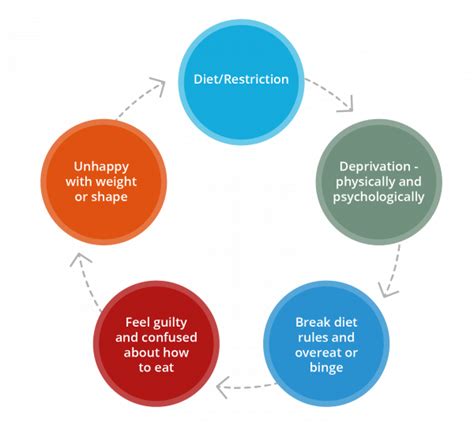
What appears to be an initial relationship “ick” – those behaviors or traits that trigger feelings of disgust or unease – might actually signal something positive, suggesting potential long-term compatibility and a deeper connection, according to relationship experts. What some may view as glaring red flags could be re-evaluated as unique green flags, indicative of authenticity, vulnerability, and a partner’s willingness to be genuine.
Relationship dynamics are complex, and what triggers an “ick” in one person might be endearing to another. Experts suggest that many of these perceived flaws or quirks can be re-framed as potential strengths, depending on individual perspectives and relationship goals. The key lies in understanding the underlying reasons for these initial reactions and evaluating whether they align with one’s core values and relationship needs. Instead of immediately dismissing a potential partner based on these “icks,” exploring their context and motivations can lead to surprising discoveries and stronger, more authentic connections.
Here are 15 examples of “red flags” that could potentially be seen as “green flags”:
-
Awkwardness: Initial awkwardness can indicate that a person is genuine and hasn’t mastered the art of superficial charm. According to experts, someone who isn’t trying too hard to impress might be more authentic and comfortable being themselves. This transparency can lay the foundation for a more honest and trustworthy relationship. As highlighted in the original article, “Maybe they’re just a little nervous about meeting you! And if they are willing to be their authentic selves around you from the get-go, that’s a great sign.”
-
Clumsiness: While clumsiness might seem like a minor annoyance, it can reveal vulnerability and a lack of pretension. People who aren’t afraid to be imperfect might be more open to admitting mistakes and working through challenges together. A partner who can laugh at themselves is often more resilient and adaptable in the face of life’s inevitable ups and downs.
-
Being a “Momma’s Boy/Girl”: A close relationship with a parent isn’t inherently negative. It can signal a person who values family and commitment. “Having a close relationship with their family is a good sign that they’re capable of commitment,” the article notes, provided the relationship is healthy and doesn’t cross boundaries. The key is to observe whether the parent-child dynamic is enmeshed or supportive.
-
Nervous Laughter: Excessive or inappropriate laughter can be off-putting, but it might be a coping mechanism for anxiety or discomfort. If understood with compassion, it reveals a person’s vulnerability and their efforts to navigate social situations. Recognizing this behavior as a response to stress can foster empathy and understanding.
-
Being Overly Enthusiastic: While excessive enthusiasm can be overwhelming, it often stems from genuine excitement and passion. Rather than viewing it as a negative trait, it can be seen as a sign of a person who is genuinely engaged and invested in their interests. “Sometimes, that just means they are really excited about spending time with you.”
-
Terrible Taste in Music: Differing tastes in music can actually be a good thing, exposing you to new genres and perspectives. A willingness to share and appreciate diverse interests can enrich a relationship and prevent stagnation. Shared experiences and discussions about music can lead to deeper understanding and connection.
-
Being Bad at Flirting: Inability to flirt smoothly can point to sincerity and a lack of manipulative intent. It signals honesty and a preference for genuine connection over superficial charm. Someone who struggles with flirting may be more interested in getting to know you for who you are.
-
Talking Too Much: While dominating conversations can be frustrating, it can stem from enthusiasm or a desire to connect. With gentle guidance and open communication, a talkative partner can learn to be a better listener. The key is to determine if the excessive talking is a sign of narcissism or simply a communication style that needs adjusting.
-
Being Too Opinionated: Having strong opinions indicates a person who is passionate and engaged in the world. Disagreements can lead to stimulating discussions and intellectual growth. The ability to respectfully debate differing viewpoints is a sign of a healthy and resilient relationship.
-
Constant Apologizing: While excessive apologizing can be annoying, it often indicates a person who is self-aware and striving to be considerate. With encouragement and reassurance, a partner can learn to develop healthy boundaries and express themselves assertively without constantly feeling the need to apologize.
-
Being a Know-It-All: A tendency to act like a know-it-all can be irritating, but it can also stem from a genuine desire to share knowledge and help others. By approaching the situation with humor and offering alternative perspectives, a partner can learn to be more humble and open to learning from others.
-
Over-Sharing: Sharing too much personal information early on can be a red flag, but it can also indicate a person who is open, honest, and eager to build intimacy. Establishing healthy boundaries and communicating comfort levels can help create a safe space for sharing and vulnerability.
-
Being Frugal: While excessive frugality can be problematic, it can also signal financial responsibility and a desire to save for the future. Open communication about financial values and goals can help couples navigate their differences and build a secure financial foundation.
-
Having Quirky Hobbies: Unusual hobbies and interests can make a person unique and interesting. Sharing these passions can add excitement and novelty to a relationship. Embracing each other’s quirks can foster acceptance and appreciation for individuality.
-
Being a Creature of Habit: While rigid routines can be restrictive, they can also provide stability and predictability. Understanding the reasons behind these habits and finding compromises can help couples balance their needs for structure and spontaneity.
Ultimately, reframing perceived red flags as potential green flags requires empathy, communication, and a willingness to look beyond surface-level behaviors. By understanding the underlying motivations and addressing any underlying issues, individuals can cultivate deeper connections and build more fulfilling relationships.
Frequently Asked Questions (FAQ):
1. What is an “ick” in the context of relationships, and how does it differ from a true red flag?
An “ick” in a relationship refers to a sudden feeling of disgust, revulsion, or unease towards a partner or potential partner, often triggered by seemingly minor behaviors or traits. It’s a subjective reaction that can range from a mild annoyance to a significant turn-off. Unlike genuine red flags, which are serious warning signs of potentially harmful or abusive behavior (such as controlling tendencies, dishonesty, or disrespect), an “ick” is usually based on personal preferences or superficial observations. The key difference is the severity and potential impact on the relationship’s health and safety. Red flags indicate fundamental problems, while icks are more about personal quirks or minor irritations.
2. Why might someone interpret a behavior as an “ick” initially, and how can they re-evaluate it as a potential “green flag”?
People often interpret behaviors as “icks” due to a variety of reasons, including personal biases, societal expectations, past relationship experiences, or simply being in a negative mood. Initial impressions can be heavily influenced by surface-level observations without understanding the underlying context or motivations behind the behavior.
To re-evaluate an “ick” as a potential “green flag,” consider the following:
- Self-Reflection: Examine your own biases and expectations. Ask yourself why this particular behavior bothers you and whether it’s based on a rational assessment or a personal aversion.
- Empathy: Try to understand the other person’s perspective. Consider why they might be behaving in a certain way. Is it a coping mechanism, a cultural difference, or simply a personality trait?
- Communication: Talk to your partner about your feelings in a non-judgmental way. Express your concerns without blaming or criticizing. Ask them about their intentions and motivations.
- Context: Evaluate the behavior in the context of the overall relationship. Is it an isolated incident or a recurring pattern? Does it outweigh the positive qualities of the person?
- Open-Mindedness: Be willing to challenge your initial assumptions and consider alternative interpretations. Remember that no one is perfect, and everyone has their quirks.
- Focus on Values: Assess whether the behavior aligns with or contradicts your core values. If it doesn’t fundamentally clash with your values, it might be worth overlooking or addressing through communication.
3. The article mentions “being a momma’s boy/girl” as a potential green flag. What are the key distinctions between a healthy, close relationship with parents and an unhealthy, enmeshed one, and how can you identify them in a partner?
A healthy, close relationship with parents is characterized by:
- Respect and Affection: Genuine love and respect between the individual and their parents.
- Emotional Support: Parents providing emotional support and guidance without being overly intrusive.
- Clear Boundaries: The individual maintaining autonomy and independence in their own life, making their own decisions and taking responsibility for their actions.
- Healthy Communication: Open and honest communication between the individual and their parents, without excessive drama or conflict.
- Acceptance of Partner: Parents being accepting and respectful of the individual’s partner, without trying to interfere in the relationship.
An unhealthy, enmeshed relationship with parents is characterized by:
- Lack of Boundaries: Parents being overly involved in the individual’s life, making decisions for them and interfering in their relationships.
- Emotional Dependence: The individual being emotionally dependent on their parents, seeking their approval for every decision and feeling unable to function without their constant support.
- Control and Manipulation: Parents using guilt, manipulation, or other tactics to control the individual’s behavior.
- Disrespect for Partner: Parents being disrespectful, critical, or dismissive of the individual’s partner.
- Triangulation: Parents involving themselves in the individual’s romantic relationship, creating conflict and undermining the couple’s bond.
To identify these distinctions in a partner:
- Observe Interactions: Pay attention to how your partner interacts with their parents. Do they treat them with respect, but also maintain their own boundaries?
- Listen to Conversations: What do they talk about when they speak about their parents? Is it about seeking advice or validation?
- Assess Decision-Making: Does your partner make independent decisions, or do they always defer to their parents’ opinions?
- Look for Red Flags: Does your partner’s parents try to control your partner or interfere in your relationship? Does your partner seem unable to say no to their parents?
- Communicate Openly: Talk to your partner about their relationship with their parents. Ask them about their boundaries and expectations.
4. How can couples navigate disagreements arising from differing perspectives on what constitutes an “ick,” and what strategies can they use to reach a compromise?
Navigating disagreements arising from differing perspectives on “icks” requires open communication, empathy, and a willingness to compromise. Here are some strategies:
- Active Listening: Listen to your partner’s perspective without interrupting or judging. Try to understand why they feel the way they do.
- Validation: Acknowledge your partner’s feelings, even if you don’t agree with their assessment. Let them know that you understand why they might be bothered by a particular behavior.
- Compromise: Find mutually acceptable solutions. For example, if one partner is bothered by the other’s messy habits, they could agree to designate specific areas for clutter or to clean up together on a regular basis.
- Humor: Use humor to diffuse tension and lighten the mood. Laughing together can help you remember that you’re on the same team.
- Professional Help: If you’re struggling to resolve disagreements on your own, consider seeking professional help from a therapist or counselor. They can provide guidance and support as you work through your issues.
- Focus on the Positive: Remember the qualities you love and value in your partner. Don’t let minor annoyances overshadow the positive aspects of your relationship.
- Negotiate Boundaries: Clearly define boundaries that respect both partners’ comfort levels. This can prevent future misunderstandings and minimize the impact of “icks.”
- Reframe the “Ick”: Try to reframe the “ick” in a more positive light. For example, if one partner finds the other’s enthusiasm overwhelming, they could try to appreciate their passion and energy.
- Accept Differences: Recognize that you and your partner are two different people with unique personalities and preferences. You won’t always agree on everything, and that’s okay. Learn to accept and appreciate your differences.
5. Beyond the 15 examples provided in the article, what are some other common “red flags” that might be re-evaluated as potential “green flags,” and what factors should be considered when making that assessment?
Beyond the 15 examples, other common “red flags” that might be re-evaluated as potential “green flags” include:
- Career Ambition (or Lack Thereof): While some might view a lack of strong career ambition as a red flag, it could also indicate a person who prioritizes work-life balance and values other aspects of life, such as family, hobbies, and personal well-being.
- Shyness/Introversion: Initial shyness might be mistaken for disinterest, but it often signals thoughtfulness, empathy, and a preference for deeper connections over superficial interactions.
- Expressing Emotions Openly (Even Negatively): While excessive negativity can be draining, a partner who is willing to express their emotions openly, even the negative ones, might be demonstrating vulnerability and a desire for authentic communication.
- Having Few Friends: While having no friends could be a red flag, having few close friends might indicate a preference for quality over quantity and a commitment to nurturing deep, meaningful relationships.
- Being Highly Independent: While some might see high independence as a sign of emotional unavailability, it could also indicate a person who is self-sufficient, responsible, and capable of managing their own needs.
- A History of Failed Relationships: While a long string of failed relationships could raise concerns, it might also demonstrate a person who is willing to learn from their mistakes and is actively seeking a healthy and fulfilling partnership.
- Direct Communication (Even if Blunt): While some might find bluntness off-putting, it can also indicate honesty, transparency, and a commitment to clear communication.
- Living a Simple Life: While some prioritize luxury, choosing to live a simple life can suggest an appreciation for experiences over material possessions and being content with less.
- Previous Failures: A history of business or personal failures can be seen as a sign of inexperience, but it can also be a mark of resilience, willingness to take risks and the ability to learn from mistakes.
Factors to consider when making the assessment:
- The Context: What is the underlying reason for the behavior? Is it a coping mechanism, a personality trait, or a cultural difference?
- The Impact: How does the behavior affect you and your relationship? Is it causing you significant distress, or is it just a minor annoyance?
- The Intention: Is the person trying to be hurtful or manipulative, or are they simply being themselves?
- The Potential for Growth: Is the person willing to work on their behavior if it’s causing problems?
- Your Own Values: Does the behavior align with or contradict your core values?
- Overall Compatibility: How does the behavior fit into the overall picture of your relationship? Does it outweigh the positive qualities of the person?
- Communication: Honest and open communication is vital to truly understanding the intention and impact of any behavior. Discuss your feelings and concerns with your partner to avoid assumptions and build a more nuanced understanding.
By carefully considering these factors, individuals can make informed decisions about whether to re-evaluate a perceived red flag as a potential green flag, ultimately fostering deeper understanding and connection in their relationships.









